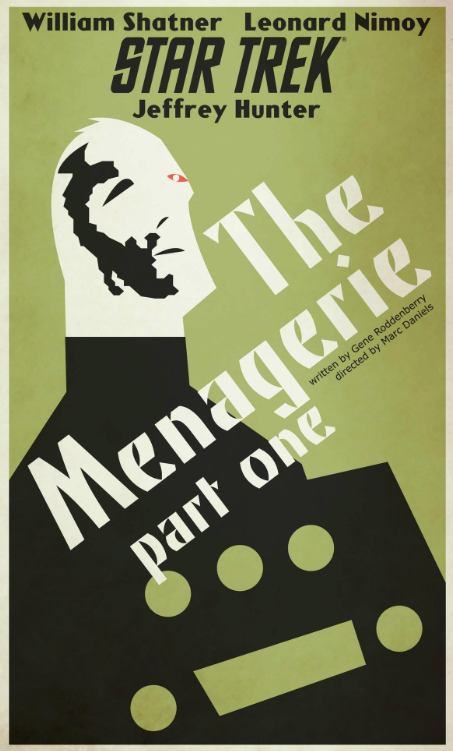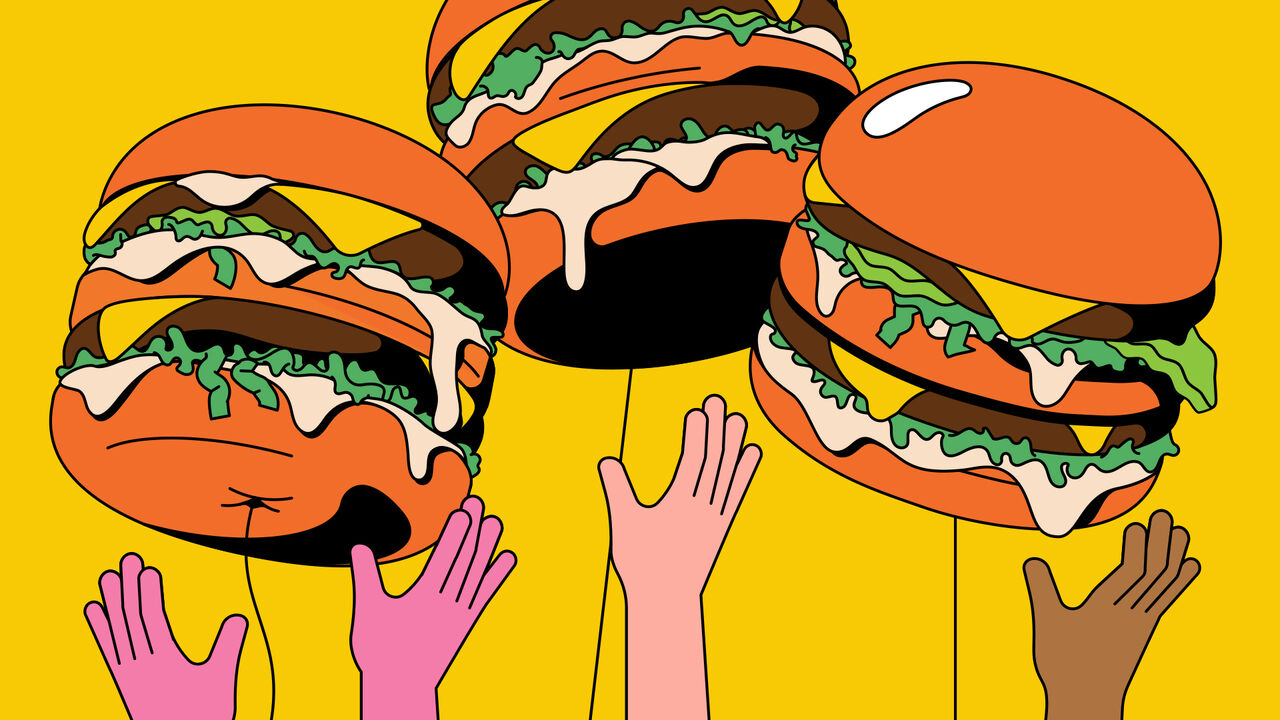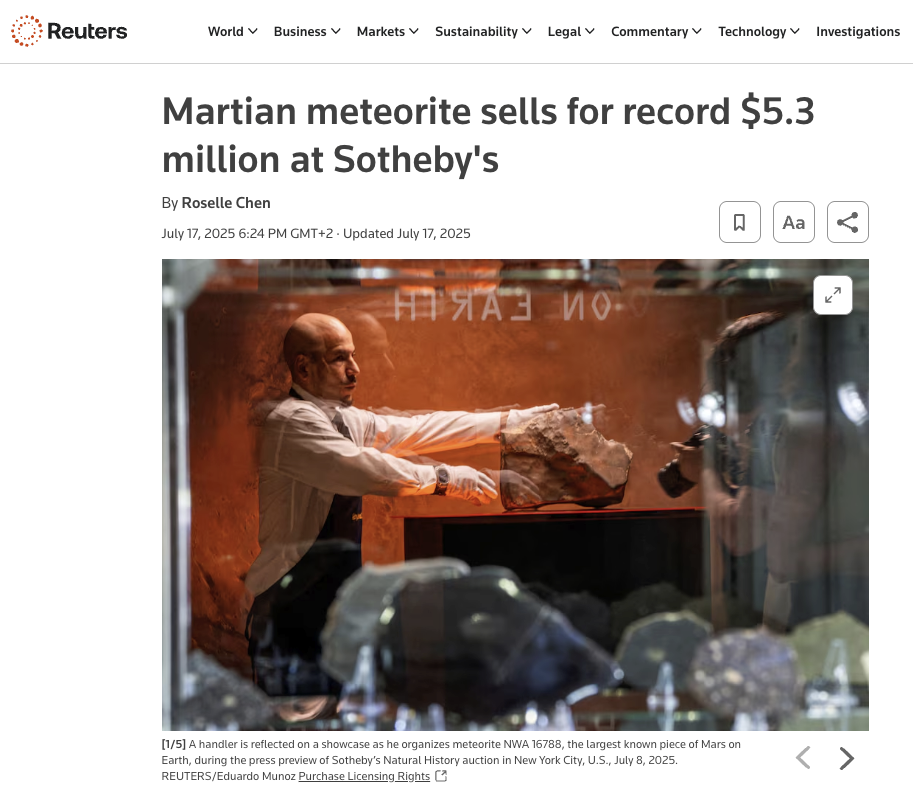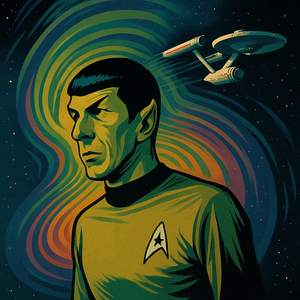One of the great things about science fiction is that it has a kind of built-in philosophical sandbox. You can experiment with all sorts of ideas: technological, political, ethical, even metaphysical. It enables us to ask “what if?” and play out scenarios before they become possible, or possibly before they become actual problems.
They range from the politically cataclysmic to the wonderfully mundane. From genetic engineering (Aldous Huxley, Brave New World), to surveillance states, (George Orwell, 1984) to Arthur C. Clarke's predictions that have become completely normal, like communications satellites, space stations, and men on the moon. Star Trek featured handheld “communicators” used by crew members to talk across distances, and Martin Cooper, the inventor of the first mobile phone in 1973, credited Star Trek as his inspiration.
Rampant in our modern era (and here Star Trek should once again take a bow) was an idea introduced in the first series of the recent version of the show, in a two-part episode called “The Menagerie”. In it, a former captain of the Enterprise, Captain Christopher Pike, is severely disabled and is unable to speak or move and is confined to a life-support chair after a terrible accident. Spock hijacks the Enterprise and takes Pike to Talos IV, a forbidden planet which is placed under strict quarantine. He is then put on trial by Starfleet.

Talos IV is forbidden because in a past mission, Pike was trapped by the Talosians, who used their capacity to create intense, inescapable illusions to try and keep him as part of their plan to repopulate their world. Once back on the planet, the Talosians offer Pike a choice: he can leave as he is or live out the rest of his life on Talos IV in an illusory world where he can walk, talk, and live happily, even with the illusion of the woman he loved, Vina, who was also disfigured in real life. He chooses to stay. Spock is found not guilty at the tribunal because, you know, his decision was pretty logical, really.
And Spock is free to head out and to boldly go where no man has gone before - or at least to go to places with better grammar. With a new captain. A certain James Tiberius Kirk. What a relief!
The phrase used to describe the Talosians' power was the ability to generate a "reality distortion field". That same phrase was memorably reconjured by Bud Tribble, a member of the original Macintosh development team at Apple in the early 1980s. He used it to describe Steve Jobs's uncanny ability to convince himself and others to believe almost anything, including impossible timelines, impractical ideas, or bold visions.
Doesn’t the notion seem to have a certain reality in our current political moment? Yes, I know, intrinsically ironic.
But think of it: The idea combines the success of the new generation of leaders like US President Donald Trump, former UK Prime Minister Boris Johnson, and Russian autocrat Vladimir Putin. It encompasses entire economies, like China, and it even incorporates the essence of the debate around artificial intelligence or at least large language models.
And it lives in the very mundane, like the surprising recent success of the band, The Velvet Sundown, which has somehow managed to get over a million and a half monthly listeners on Spotify. (That’s about the same as Miles Davis and John Coltrane get.) The band describes itself as a “synthetic music project guided by human creative direction”; actually, it's totally AI-generated, which you can tell by the haphazard lyrics and the sterile, somewhat familiar chord sequences. AI is nothing if not aggregating.
Of course, the notion of what constitutes a reality distortion field plunges you into a philosophical conundrum as old as philosophy itself: if reality is being distorted, what is actual reality? And then you are off at a headlong gallop. Reality is a shadow of itself (Plato), or physical form (Aristotle), or developed from experience (Locke) or essentially unknowable (Hume). You can, and plenty of people have, rushed down this path with gay abandon because it's almost by definition endless. It's also wonderfully tautological.
But the deeper, philosophical debate about the nature of reality is only tangentially what I mean. The thing about the modern reality distortion field is that, theoretically, it's temporary because it can be cured by actual reality. In a sense, you could say former UK prime minister Boris Johnson was eventually found out by actual reality, in what now seems like something of an interesting historical accident.
But the problem with the notion is that we have to hope that it's not us who are caught in the reality distortion field, since that’s always possible too. And recent history is not being kind to those of us who believe we really do understand reality.
One would have hoped that by now that Putin’s reality distortion field would have slipped a bit, after three and a half years of war with Ukraine, perhaps a quarter of a million of his countrymen dead, all for a total gain of a measly 20% of the territory of his opponent. Lots of people believe Prime Minister of Israel Benjamin Netanyahu has created a reality distortion field, and let's be honest, that shows absolutely no signs of fading by virtue of exposure to "reality".
In a sense, great politicians always create a reality distortion field around them. It's often described as having a great personality or charisma or some such. It's often a simple consequence of the power they hold. Our own president, Cyril Ramaphosa, is somewhat protected by a reality distortion field in which he is “fixing” South Africa. His personal popularity remains high despite the fact that an overwhelming quantity of objective data does not reflect much fixing going on at all.
But the big international question surrounds Donald Trump. To what extent is his huge and very effective reality distortion field holding? And to what extent is the reality distortion field of his opponents, who (quite often wrongly) believe they understand reality better, capable of imposing actual reality on the politics of the day?
I sense that reality is beginning to creep up on Trump’s distortion field, but not as much as his adversaries would like. This is the real significance of the recent furore over the Jeffrey Epstein files, or the lack of them. It's part of Trump's reality distortion field that he can cast his opponents as “part of the system”, of which he is an outsider. Like his followers.

But when you start telling people that there is definitely, absolutely, no cover-up, that you should trust the authorities, that the judicial system must decide ... all of a sudden, you start sounding very dangerously and precariously normal. And who wants that?
These days, you slightly worry that if Descartes walked into a bar, he wouldn’t exist. 💥
From the department of food reality ...

From the department of bare necessities ...

From the department of meteoric success ...

Thanks for reading - please do share if you have a friend (or enemy!) you think would value this blog and ask them to add their email in the block below - it's free for the time being. If the sign-up link doesn't appear, you'll find it on the site.
Till next time. 💥





Join the conversation